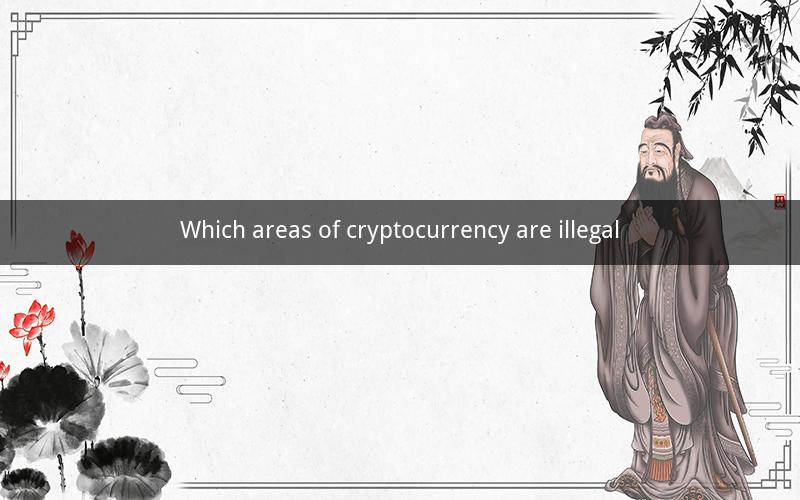
Cryptocurrency: Illegal Areas and Their Implications
Table of Contents
1. Introduction to Cryptocurrency
2. Legal Status of Cryptocurrency
3. Illegal Activities in Cryptocurrency
3.1. Money Laundering
3.2. Illicit Financing
3.3. Ransomware and Cybercrime
3.4. Tax Evasion
3.5. Illegal Marketplaces
4. Jurisdictions with Strict Cryptocurrency Regulations
5. The Role of Governments and Regulatory Bodies
6. The Future of Cryptocurrency Legality
7. Conclusion
1. Introduction to Cryptocurrency
Cryptocurrency, a digital or virtual form of currency, has gained significant popularity in recent years. It operates independently of a central bank and relies on a decentralized system, often referred to as blockchain technology. Cryptocurrency offers users the ability to make secure transactions, store value, and participate in decentralized applications.
2. Legal Status of Cryptocurrency
The legal status of cryptocurrency varies greatly across different countries and regions. While some governments have embraced it and even introduced their own digital currencies, others have imposed strict regulations or outright banned its use.
3. Illegal Activities in Cryptocurrency
3.1. Money Laundering
One of the most significant concerns regarding cryptocurrency is its potential use in money laundering. Due to its anonymous nature, cryptocurrencies can be used to hide the origin of funds and facilitate illegal activities. Governments and financial institutions are working tirelessly to combat this issue.
3.2. Illicit Financing
Cryptocurrency has also been linked to illicit financing, including the funding of terrorism, drug trafficking, and other criminal activities. The decentralized nature of these currencies makes it challenging for authorities to trace and regulate transactions.
3.3. Ransomware and Cybercrime
Cybercriminals have increasingly turned to cryptocurrency to demand ransom payments. The anonymity and ease of transferring funds make it an attractive option for those engaging in ransomware attacks and other cybercrimes.
3.4. Tax Evasion
Cryptocurrency users may attempt to evade taxes by not reporting their earnings or by using cryptocurrency to conduct illegal transactions. This poses a significant challenge for tax authorities, who are working to adapt their regulations to address this issue.
3.5. Illegal Marketplaces
The rise of dark web marketplaces has further complicated the legal landscape of cryptocurrency. These marketplaces operate outside the bounds of the law and often deal in illegal goods and services, using cryptocurrency as a means of payment.
4. Jurisdictions with Strict Cryptocurrency Regulations
Several countries have implemented strict regulations on cryptocurrency to address the aforementioned concerns. These include China, Russia, and South Korea, which have banned or restricted the use of cryptocurrencies within their borders.
5. The Role of Governments and Regulatory Bodies
Governments and regulatory bodies play a crucial role in ensuring the legality and security of cryptocurrency. They are responsible for developing and enforcing regulations, as well as collaborating with international partners to combat illegal activities.
6. The Future of Cryptocurrency Legality
The future of cryptocurrency legality remains uncertain. As technology advances and the use of cryptocurrencies continues to grow, it is likely that governments will continue to impose stricter regulations. However, the decentralized nature of cryptocurrency may make it difficult to fully regulate.
7. Conclusion
Cryptocurrency has the potential to revolutionize the financial industry, but it also poses significant legal challenges. Illegal activities, such as money laundering and tax evasion, must be addressed to ensure the long-term viability of cryptocurrency. Governments and regulatory bodies will need to work together to strike a balance between fostering innovation and protecting their citizens.
---
Questions and Answers
1. Q: What is money laundering, and how does it relate to cryptocurrency?
A: Money laundering is the process of making illegally obtained money appear legal. Cryptocurrency can be used in money laundering by hiding the origin of funds and facilitating anonymous transactions.
2. Q: How can governments combat the use of cryptocurrency in illegal activities?
A: Governments can combat the use of cryptocurrency in illegal activities by implementing strict regulations, enhancing collaboration with international partners, and using advanced technologies to monitor transactions.
3. Q: What is the difference between a cryptocurrency and a fiat currency?
A: Cryptocurrency operates independently of a central bank and relies on a decentralized system, while fiat currency is issued and regulated by a government.
4. Q: Can cryptocurrency be used for tax evasion?
A: Yes, cryptocurrency can be used for tax evasion by not reporting earnings or conducting illegal transactions.
5. Q: What is a dark web marketplace, and how does it relate to cryptocurrency?
A: A dark web marketplace is an online platform that operates outside the bounds of the law, often dealing in illegal goods and services. Cryptocurrency is commonly used as a means of payment on these platforms.
6. Q: How does ransomware work, and how is it related to cryptocurrency?
A: Ransomware is a type of malware that encrypts a victim's files and demands a ransom payment in exchange for the decryption key. Cybercriminals often demand payment in cryptocurrency to ensure anonymity.
7. Q: What is the role of blockchain technology in cryptocurrency?
A: Blockchain technology is the decentralized and secure ledger that records cryptocurrency transactions. It ensures the integrity and transparency of the system.
8. Q: How can individuals protect themselves from cryptocurrency-related scams?
A: Individuals can protect themselves from cryptocurrency-related scams by conducting thorough research, using reputable exchanges, and being cautious of unsolicited investment opportunities.
9. Q: What is the potential impact of cryptocurrency on the global financial system?
A: Cryptocurrency has the potential to disrupt the global financial system by offering a decentralized and secure alternative to traditional banking and financial services.
10. Q: How can governments regulate cryptocurrency without stifling innovation?
A: Governments can regulate cryptocurrency by implementing flexible and forward-thinking regulations that address the concerns of illegal activities while allowing for innovation and growth.